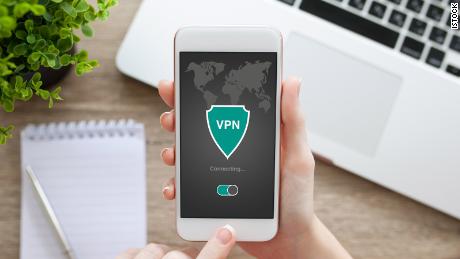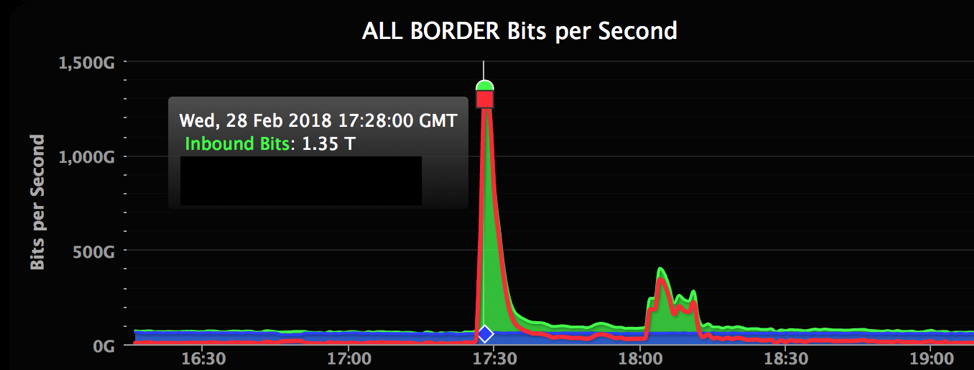Can a VPN Be Hacked?


More than two decades have passed, during which Virtual Private Networks (VPNs) were an excellent solution for digital security, privacy, and anonymity. This tool saw several updates and advancements over time, and it became the most preferred cybersecurity equipment.
Now, with a VPN, anyone can enhance their online well-being, whether beginners or tech-savvy users. But are they safe? Can a VPN be breached? Let’s find out.
How Does a VPN Work?
To find out whether or not someone can hack your VPN service, you must understand how this technology works. Let’s begin by looking at how your device connects to the internet.
When you search for a site address on your browser, your local ISP (Internet Service Provider) receives your request. Then, the latter will forward it to the World Wide Web servers, who will send it back to your browser.
And every network has a router, whether your mobile hotspot or physical router, which acts as a gateway to your ISP.
In the current Internet age, failing to safeguard your router can be fatal to your network. And it gets even worse when you connect to a public WiFi. Without proper cybersecurity tools, ISPs, web servers, and cybercriminals can tap your personal information.
However, with a VPN, your sensitive data will be safe and secure, far from the reach of encroaching eyes. In other words, government authorities, ISPs, and cybercriminals won’t have access to your digital data.
A VPN encrypts your data before it exits your device and redirects it through a secure tunnel. That way, your ISP can’t monitor you’re up to. Your traffic then moves from the ISP to the VPN server you selected, after which your provider changes your IP address and physical location.
At this point, web servers won’t be able to read your original IP and location. They’ll only see the new information assigned by the VPN server.
Are Hacking Attempts Feasible While Using a VPN?
VPNs are excellent cybersecurity tools that will help you to fend off snoopers and keep your data safe. But you need to ask yourself whether your information is 100% secured against cybercriminals. Let’s find out.
Your Device
A good VPN always encrypts your data before it leaves your device. Once it redirects the encrypted data through a secure tunnel, even elite hackers won’t manage to view your information. They’ll need a decryption key, which is only available on both ends of two devices (your device and VPN servers).
However, despite the effort put in by a VPN to ensure your safety, there are ways you can still compromise your seemingly protected information. If, for instance, you use a weak password or fall victim of malware or phishing, there’s not much a VPN can do.
Therefore, it’s paramount that you make wise decisions and avoid making rookie online mistakes.
The Encryption
Whenever you use a VPN on your device, all the information you send and receive will be well encrypted. The only way snoopers can get to it is by breaking your encryption protocol. Nonetheless, virtual private networks offer reliable and robust programs to ensure your data is safe.
You can use other means of encryption to secure your data, but they can’t match the advanced military-grade protocols that VPNs use. Premium providers use next-gen keys, which involve a long string of characters.
Hackers might try to breach it with a brute-force attack, but they’ll fail. That’s because reputable VPNs use AES 256-bit, military-grade encryption that’s impossible to break.
VPN Servers
The security of your connection depends entirely on the servers of your VPN. For example, if you self-host a VPN, then the strength of your server will depend on how strong you make it. Moreover, since you’re most likely going to be the only user, tracking you will be much easier.
Also, free VPNs might use some secure protocols, but most of them have a terrible reputation for monitoring and possibly sharing your data.
Therefore, you should use a premium VPN that guarantee your online security, privacy, and anonymity. But to enhance end-to-end encryption, we recommend you to always open HTTPS sites only.
Every premium VPN might deploy different security features, but you can count on all of them to provide the highest security levels. That’s due to the HTTPS certificates can improve the encryption passing through your browser.
Websites You Visit
Websites you visit play a considerable role in determining whether your VPN can keep you safe. If you visit insecure sites (HTTP connections), then you risk compromising your device security. While you might walk away without any real harm, it won’t be difficult for anyone to connect the dots and track your online activity.
As a result, if you fall for a phishing attack, then even your VPN will not protect you. Your device will already be infected with malware.
DNS Spoofing
DNS, or Domain Name System, is what translates your request when you type in a web address. You see, Internet browsers process the information you input using IP addresses, which can be challenging to remember.
So instead of typing sophisticated numerical keys, users simply write domain names like netflix.com or youtube.com. Then, DNS translates them to IP addresses so that Chrome or Firefox can load the page you want.
But what if hackers manage to infiltrate DNS servers? They’ll be able to redirect you to a malicious website and steal your sensitive data.
However, top virtual private networks use their own DNS servers, which are secured via encryption. That makes them impossible to hack or breach.
DDoS Attacks
A distributed denial-of-service (DDoS) attack happens when multiple fraudulent requests flood certain websites or servers, causing them to crash. To launch such an assault, cybercriminals implant bots in several devices, which could include yours.
Then, once they form a vast network, they bombard pages with a massive number of requests that hosts cannot handle. But how does this affect you?
When bots infect your device, they’ll use up a part of its RAMs, causing it to slow down. Furthermore, they consume bandwidth, which reduces Internet connection speeds. In other words, these attacks will have their toll on your phone’s or computer’s performance.
The largest DDoS attack hit the popular developer platform GitHub in February 2018. It saw incoming traffic at a massive rate of 1.35 terabytes per second (Tbps). And even though the website had a protection service against such attacks, it couldn’t prevent it from happening.
Luckily, it only lasted about 20 minutes before GitHub fixed the problem.


However, you can avoid all that by getting a reputable VPN service capable of preventing bot infections and isolating them if found. Therefore, it’s better to have a premium antivirus software to remove such malware.
Man in the Middle (MITM) Attack
Hackers don’t always access your device directly. They sometimes intercept the communication between your device and the Internet. That’s usually your WiFi connection, which is why you must never connect to public WiFi because they have extremely low security.
MITM attacks are hazardous as they give perpetrators access to your sensitive data. That includes emails, passwords, credit card information, and much more.
However, since VPNs use military-grade encryption, it will be almost impossible for hackers to breach your Internet connection and intercept your data. And even if they do, they won’t be able to read it.
Which VPN is the best? Tell us what you think.



